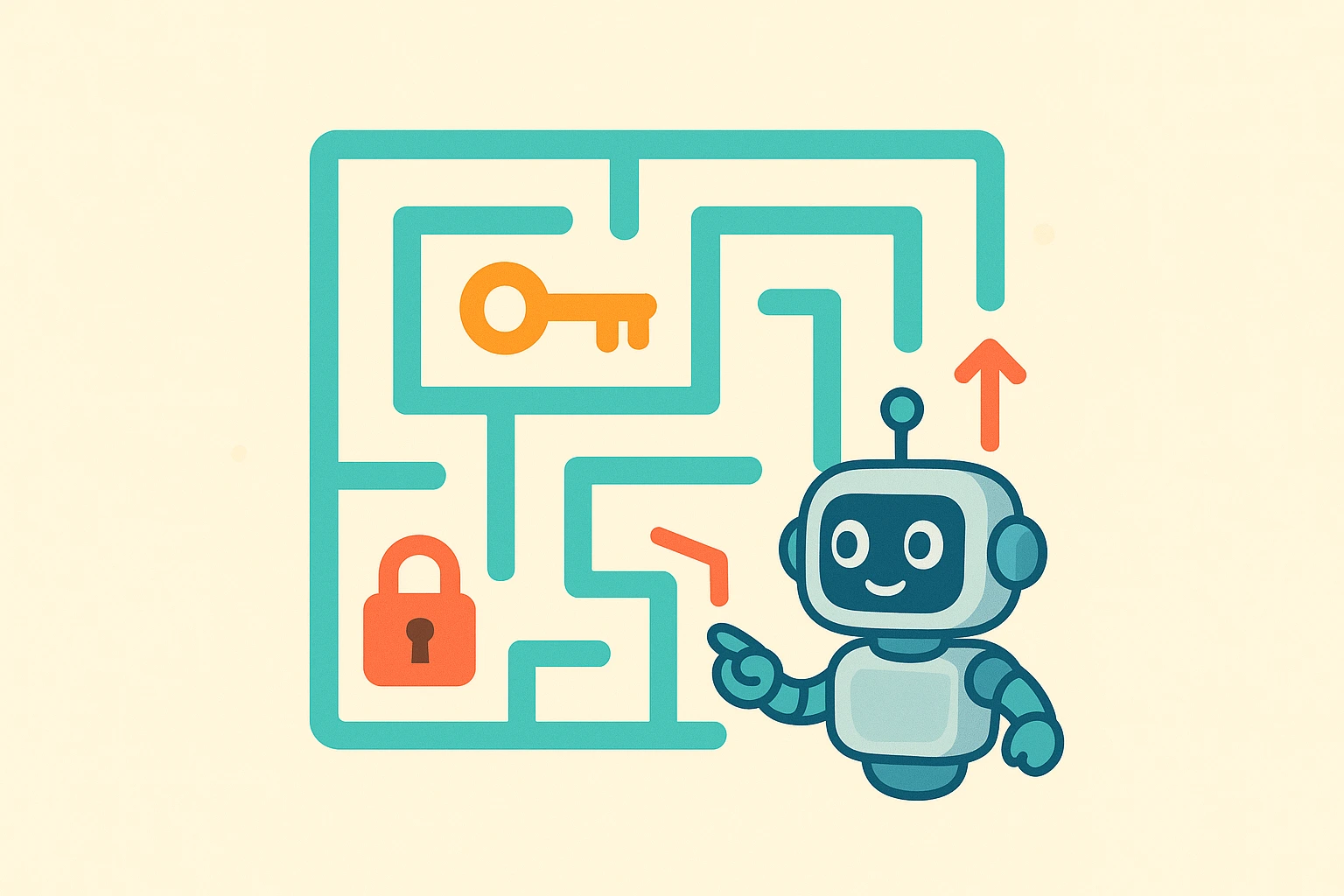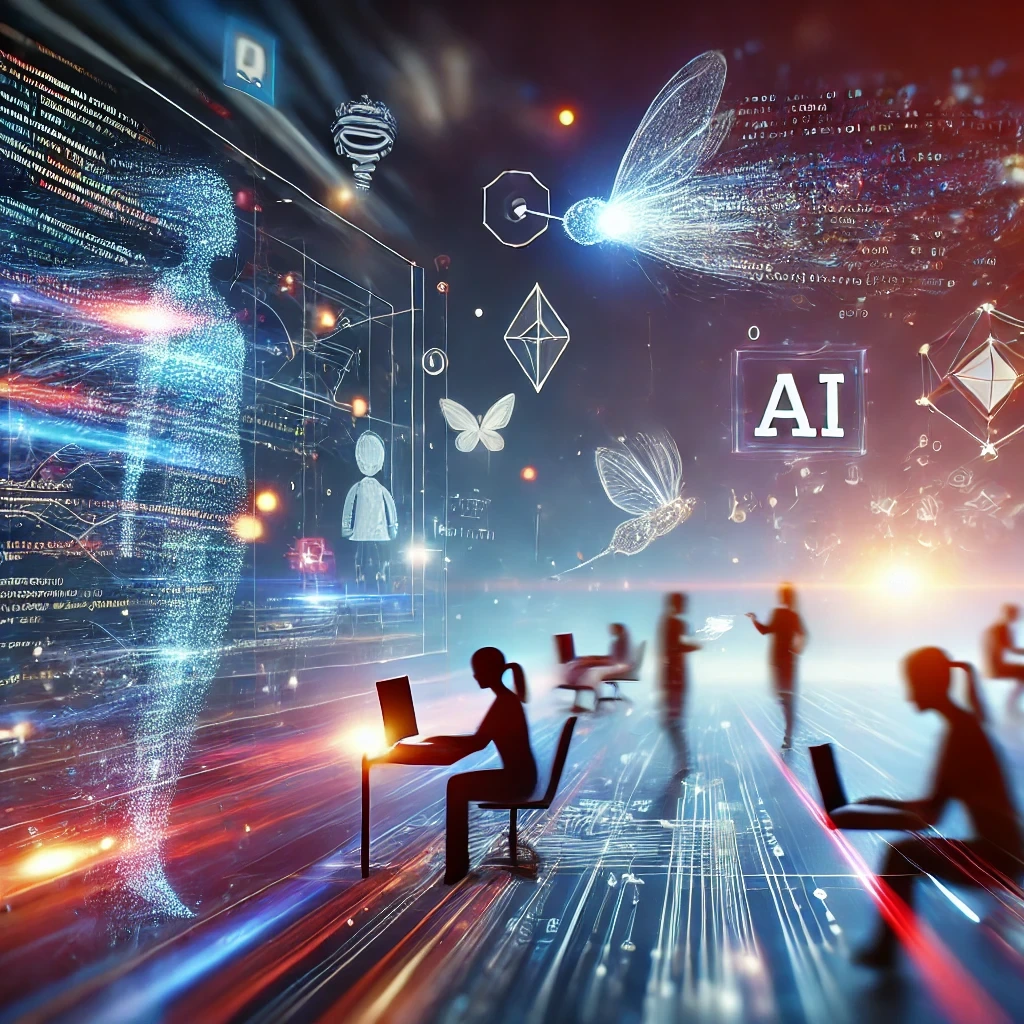LLM-Powered Tools: Boost Your Software Development Skills with Automation, Seamless Collaboration, and Cutting-Edge Knowledge
As software development continues to advance, LLM-powered tools and services are emerging as a key component of the field. By automating routine tasks and enhancing code quality, these advanced technologies can be a powerful tool for developers looking to enhance their skills and stay competitive in a fast-paced industry. In this article, we'll explore how LLM-powered approaches can elevate your software development skills and assist you in achieving your goals as a programmer.
But how can software engineers potentialize their skills with AI assistance?
Let’s dive into this new universe of AI powered tools that certainly will boost your quality and productivity.
Automating routine tasks
One of the most significant advantages of using AI in software development is the ability to automate routine tasks. With AI-powered tools, developers can automate repetitive tasks such as code formatting, testing, and debugging. This frees up valuable time that can be spent on more complex and challenging tasks, such as improving software functionality and creating innovative solutions.
Take the example of code formatting. This task can be incredibly time-consuming and often requires a significant amount of effort. However, with AI-powered tools, code formatting can be automated, allowing developers to focus on more pressing issues. Similarly, testing processes can also be automated using tools like Testim.io. This tool can identify and correct test cases after detect changes in the codebase. This allows developers to quickly identify and fix test case scenarios issues, without having to spend time manually on it.

Security is also a significant concern in software development. With the rise of cyber threats, it's more critical than ever to ensure that code is secure. This is where tools like GitHub's CodeQL come into play. Using machine learning, CodeQL code analysis tool can help identify security vulnerabilities in code changes. By automating this process, CodeQL enables developers to find and fix security issues more efficiently.

Artificial intelligence (AI) tools are revolutionizing the software development industry, and Refraction is at the forefront of this trend. This web-based tool uses AI to speed up unit testing, improve code quality, and enhance code reliability. Refraction's ability to automatically generate tests based on code changes saves developers time and reduces the risk of missing critical issues. By identifying potential issues early on in the development cycle, developers can reduce the risk of costly errors and improve the overall quality of the code. This can lead to faster development cycles, fewer bugs, and ultimately, better software.
Refraction AI capabilities also enable it to improve code quality by identifying potential bugs, security vulnerabilities, or performance issues. The tool can provide recommendations for improving the code, such as suggesting alternative coding patterns or highlighting potential areas of optimization. By automatically analyzing code and identifying potential issues, Refraction allows developers to focus on writing high-quality code that meets the needs of their users.

Ultimately, the use of AI in software development can greatly improve the quality of code by providing real-time feedback and insights, automating routine tasks, and identifying potential issues before they become larger problems. By using these tools to improve the quality of their code, developers can produce software that meets the needs of users and customers, while also staying ahead of the competition in a rapidly changing industry.
Enhancing collaboration
AI-powered collaboration tools can help to connect developers across teams and geographies, providing a platform for real-time collaboration and feedback on projects.
Notion, the popular productivity and collaboration tool, has added a new feature that allows users to ask an AI to continue writing in the same style and tone as their previous text. This new feature, called NotionAI, is powered by OpenAI's GPT-3 language model and is designed to save users time and effort by automating the writing process.
With NotionAI, users can simply type in a few words or sentences and let the AI take over, generating text that matches the style and tone of their previous writing. This can be especially useful for tasks such as drafting emails, writing reports, or creating project documentation. By automating the writing process, NotionAI frees up users' time and allows them to focus on more important tasks, such as strategizing or analyzing data.

Another interesting tool similar to Notion is Taskade AI, also driven by advanced LLM technology. Taskade is a all-in-one solution designed to elevate team collaboration for the modern workforce. This multifaceted platform unites five essential AI-powered features such as content writing, task and project management, note-taking, document editing, mind mapping, and video chat. All this to streamline organization and enhance productivity. The benefits of this tool include accelerated content generation, customizable project views, and real-time collaboration, enabling users to unlock their full potential and achieve greater success in their projects.

Boosting creativity
AI-powered tools can help developers to generate new ideas and approaches to coding, leveraging machine learning and data analysis to identify patterns and make suggestions for improvement.
In today's globalized software development landscape, it's more important than ever to have tools that enhance collaboration across teams and geographies. AI-powered collaboration tools can provide real-time feedback and connection between developers, improving communication and productivity. For example, GitHub's AI-powered tool, CoPilot, can suggest code based on the context of the project and the codebase. This allows developers to work together more effectively and efficiently, as they can quickly see how their changes fit into the overall project.

When it comes to code reviews,Codeball, an AI-powered code-review bot, streamlines the software development process by approving Pull Requests (PRs) that require no further feedback or objections. Handling 63% of PRs typically marked as LGTM (Looks good to me), Codeball allows developers to concentrate on more complex PRs. Utilizing a deep learning model trained on millions of PRs, Codeball examines numerous indicators to make accurate approval decisions, ensuring efficiency and code quality in the development process.

Regarding data retrieving tasks, developers can significantly boost their productivity using Text2Sql.ai by effortlessly generating complex SQL queries from simple English instructions, eliminating the need for manual query writing. The tool's enhances developers' productivity by enabling easy SQL query generation from English instructions and translating queries back into plain English for better understanding. Its compatibility with various SQL dialects and custom database schema connections promotes seamless database management, ultimately allowing developers to focus on innovation and expedite project completion.

Overall, there are many AI-powered services available to help programmers improve their code quality and boost their creativity. By leveraging these services, developers can optimize their code, save time on tedious tasks, and focus on more creative and innovative aspects of software development.
Staying up-to-date
AI-powered tools can help developers stay current with the latest trends and technologies in the field, providing access to real-time data and insights that can inform their work and keep them ahead of the curve.
A handy tool to help developers to stay up-to-date with technology is Phind search engine. Phind’s intuitive design and AI-driven capabilities make it an invaluable resource for developers in their day-to-day tasks. By using Phind, developers can quickly obtain accurate solutions, saving time and reducing frustration often associated with conventional search engines. Its ability to parse complex questions and provide relevant code snippets streamlines the troubleshooting process, allowing developers to focus on higher-value tasks. Additionally, Phind's simple explanations facilitate better understanding of concepts, promoting continuous learning and skill development. Ultimately, integrating Phind into their routine empowers developers to work more efficiently, enhance their expertise, and deliver exceptional results in their projects.

Conclusion
In conclusion, the use of AI in software development has the potential to revolutionize the way we work and improve the quality and efficiency of our code. By leveraging the power of machine learning, data analysis, and automation, developers can unlock new possibilities for creativity, collaboration, and innovation. Whether you're a seasoned pro or just starting out, incorporating AI tools and techniques into your development workflow can help you to become a better developer and achieve your professional goals. So why not start exploring the possibilities today and see how AI can take your skills to the next level?



